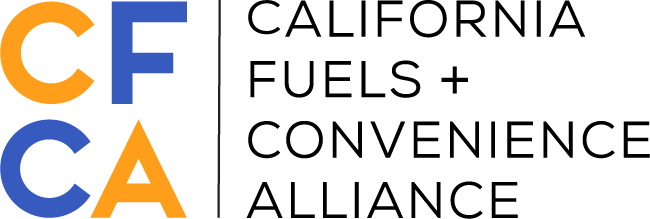
California Fuels and Convenience Alliance
2520 Venture Oaks Way, Suite 100
Sacramento, CA 95833
916.646.5999
October 21, 2022
National Fire Protection Association
ATTN: 30A Technical Committee Task Group
1 Batterymarch Park
Quincy, Massachusetts 02169-7471
RE: Electric Vehicle Charging Code
The California Fuels and Convenience Alliance (CFCA) represents about 300 members, including nearly 90% of all the independent petroleum marketers in the state and more than one half of the state’s 12,000 convenience retailers. Our members are small, family- and minority-owned businesses that provide services to nearly every family in California. Additionally, CFCA members fuel local governments, law enforcement, city and county fire departments, ambulances/emergency vehicles, school district bus fleets, construction firms, marinas, public and private transit companies, hospital emergency generators, trucking fleets, independent fuel retailers (small chains and mom-and-pop gas stations) and California agriculture, among many others.
While CFCA appreciates the task group’s work to advocate for fire safe codes, we are deeply concerned with the proposed amendments being considered in the revision cycle for the 2024 edition of the code as it pertains to electric vehicle charging stations at motor fuel dispensing facilities. CFCA members, many of which are small operators that have begun deploying EV DC fast chargers at their locations, are working diligently to evolve with this rapidly changing industry. Many motor fueling sites in California are under a half-acre and are already severely limited on the placement of EV chargers on their sites. Additionally, certain local ordinances further restrict the placement of EV chargers on sites, which can include but is not limited to, prohibiting EV chargers from being visible from the street. This is in addition to local governments who have begun to ban new fueling sites across the state. Motor fueling sites in California are much smaller than their counterparts in other regions of the nation and must already comply with highly restrictive state and local statutes and ordinances. Furthermore, ADA requirements already add excessive costs and further limit placement of EV chargers on sites.
We believe a reasonable setback from the tanker fill point is already in place, and the addition of a setback from all possible locations the tanker could be parked is not reasonable and will be unimplementable. Moreover, pooling requirements for existing locations will severely impact stormwater draining mitigation at sites and will add onerous compliance costs. The proposed revisions to the 2024 edition of the code would add yet another highly complicated layer for station owners to factor in when expanding operations to include EV chargers and would ultimately result in prohibiting most California small operators from installing EV chargers at their motor fueling sites. Due to these challenging operational environments, we strongly oppose code changes that do not arise from documented incidents. Additionally, we cannot support the revisions to the code for the 2024 revision cycle as they would severely impact our members who are expanding into these technologies in response to California’s climate mandates.
For these reasons, we must respectfully request that the task group collaborate with stakeholders from each state to determine codes that are fire safe as well as implementable for the diverse regions across the nation.
Please contact Alessandra Magnasco, CFCA’s Policy Manager, by email or phone with any questions or comments, at alessandra@cfca.energy and (916) 646-5999.
Respectfully,

Elizabeth Graham
Executive Director
California Fuels and Convenience Alliance

Alessandra Magnasco
Policy Manager
California Fuels and Convenience Alliance
